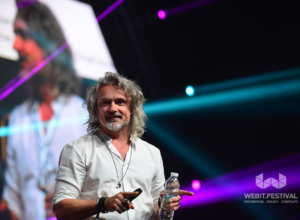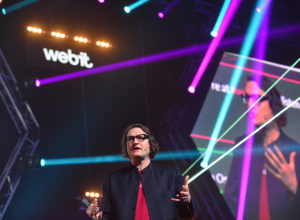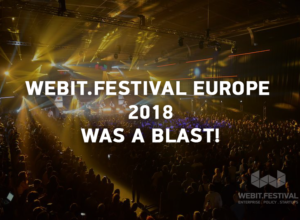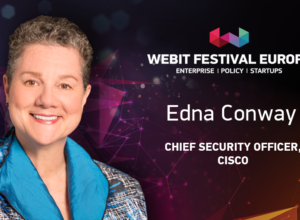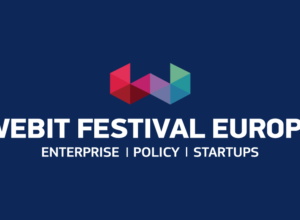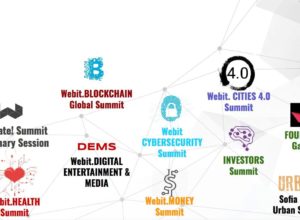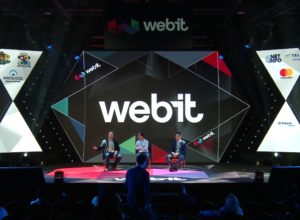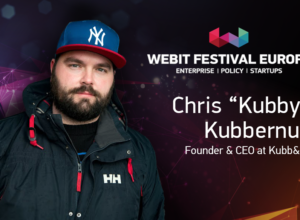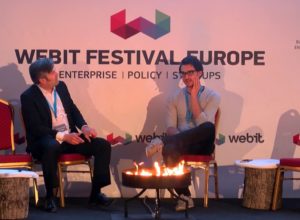Tag: future
Martin Wezowski talks about “WTF – What’s the future” @Webit.Festival 2018
"The future is very important, because we will kind of spend the rest of our lives there. So we better make it really good. :)"
Martin Wezowski is the Chief Designer & Futurist at SAP. He joined Webit to put some perspective on “what is work and what is human in a superhuman future”.Martin, being a fan of the Beatles, started with playing a tune that resembles the style of the iconic band. But later he revealed that the song was created by AI that mimics the Beatles.
"It listens to everything that The Beatles have ever done and makes new songs. It does it so successfully that it has over 2M views on Youtube. That should really raise deep and profound questions."
The main question is WTF - What’s the future?
One example of that is the healthcare."It takes 7-10 years to make a doctor, which gives us a severe shortage of doctors."
With the soon-future-AI, medical help will be in infinite amount everywhere, all the time for everyone. That should also change our minds about what is human work. Nowadays AI can diagnose heart diseases or lung diseases more accurately than humans. Funny enough, humans and AI combined are almost 100% correct. In the 90s we decoded the human genome. It took billions of dollars. Now there is a DNA sequencer for 1000$. What does this mean for research? What does it mean for animal testing?The NOW has never been so temporary as it is today.
Maybe we should start imagining the futures that we want and start creating them, rather than react to what we where we are today because thus we are too late. That might be a little scary because we see jobs disappearing. A hundred years ago almost everybody worked at farming, fishing, forestry. Now it's only about 2%. What did they do? What would they think if you'd tell them: "Most of you will not be in agriculture." What would hey imagine that they will do, accounting? Web development? We are in the same situation today. And it doesn't matter because we will imagine new jobs as they emerge. We can't plan for it. And the real question is this:What to teach kids to become relevant in 30 years from now?
How can we adapt to the change? What new values do we need? The stability of planning is a little bit of fake. The opposite to stability is not instability, it's emergence. It's risk, it's rock'n'roll. To transform, to challenge and take risks. Innovation is sort of rock'n'roll in business and we need more of that.One thing we rely on is the thinking of the 3 horizons.
- Continuous innovation - Ready to consume: Traditional KPIs (key performance indicators) of predictable outcomes and repeatable results and scalable efficiency.
- Adjacent innovation - Ready to Co-innovate: Forecasting your intelligence and resources to the near future, the next, the adjacent innovation where you co-innovate with your partners and/or customers.
- Transformative Innovation - Ready to Inspire: Thinking away from what you can do today and the tools you have. Your vision and thought leadership leads to ideas that you must articulate very clearly so you can have a decent discussion on executive and board level about these ideas.
Help the world run better and improve people's lives.
These two things go to the two sides of the spectrum with 4 dimensions:- The self running company
- Self organizing Business Ecosystems
- Augmented humans
- Purpose Led New Market & Business Models
“Everything from the beginning is an open end and it's up yo us to actually sit down and actually use this methods and look across all the 3 horizons, articulate futures that are desirable where we can play a significant positive role. That's our purpose. And if we do that I actually think we can design futures that we all want to live in. And we should remember to have some fun as well. :)”
Missed the 2018 edition of Webit.Festival Europe? Don’t miss the 2019! Get your super early bird 2in1 tickets – 2 for the price of 1 here!
Rob Wolcott on “Innovating your life” at Webit.Festival Europe 2018
The human experience will change more in the next century than it has in the last ten millennia: Where is the discussion to accompany that change?
Mr. Wolcott returned to Sofia once again for the 10th anniversary edition of the Festival and wowed the audience with his keynote with special topic "Innovating your life". He started with a quote from the one and only Steve Jobs:
If your aspiration is to be a leader, to make mark, to create a legacy in some way than it's going to require doing something different. If you don't you're doing the same thing that everybody else already did. And how would that distinguish you? In Robert's opinion over the next 100 years the human experience will change more than it has in the past 10 000! We will be able to solve challenges that have been intractable for centuries but we will also create threads, some of which humanity has never seen before. But unfortunately our public dialog just isn't up to the task. On the one hand we hear ''The robots will steal our jobs and then kill us all in some kind of impending robot apocalypse". But on the other some people are espousing a coming technology infused nirvana. Clearly the truth is somewhere in the vast between and it's our responsibility to explore it for ourselves. The professor broke down the immense and complicated process of "innovating our life" in 5 simple steps:
"Innovation distinguishes the leaders from the followers."
1. Always keep the mission in mind. What are you doing and how are you doing it?
When we stay focused on our dreams and give them new names like GOALS of MISSIONS they automatically become more realistic and more achievable.2. Ask better questions. We only see the things which we are looking for.
We start asking questions, we start looking for new things, for new clues. Clues that will help us get to the next step, but some of them will inevitably mislead us and we will make mistakes. Then comes the next lesson.3. Seek wisdom in mistakes. The very first reaction when something goes wrong is that we are trying to hide it.
The problem is when something doesn't go the way you expect it perhaps there's a problem with the way you see the world. Back in the late 19th century two researchers named Michelson and Morley did one of the most famous failed experiment in history. They were attempting to prove the existence of the "luminiferous aether". It was the dominant hypothesis of physics in the 19th century to explain the following phenomenon.Sound cannot travel through a vacuum because there's nothing for sound to travel through. Light however, can travel through a vacuum thus there must be something in the vacuum we cannot see.
The scientists did their experiment and when it failed, they couldn't figure out why. They changed the method, tried again, then other scientists tried again but it kept failing and nobody could figure out why. Then came Einstein who said: "Perhaps there's no problem with the experiment, perhaps there's a problem with the way we see the Universe." So when something doesn't go the way you expect it, you should step back and do an after action review: Why that did not work? What can we learn from it?
4. Create option paths. Yes, options come at a cost, but create some.
"As we each create our own paths, we together create the future." - says Mr. Wolcott - and he also adds the question to the public - "On which paths are you … and why?"5. Above all seek meaning. Human beings grow through challenges.
The question for each of us is, as lifespans increase up to even beyond a 100 years, as we encounter the remainder of 21st century, we will all be faced with the question: how should we use this time?"Missed the 2018 edition of Webit.Festival Europe? Don’t miss the 2019! Get your super early bird 2in1 tickets – 2 for the price of 1 here!
… a picture tells a thousand stories! Webit.Festival Europe 2018 was...
10'000 people from 111 countries visited the Webit City
Don't miss the 2019 edition. Book your ticket now



Webit.Festival Europe 2018 in numbers:
- 10'000+ ATTENDEES (7200 Webit.Festival participants and 3000 Webit.X visitors) - 231 EXHIBITORS - 422 SPEAKERS - 110 HOURS of conference agenda & amazing content - 75% C-level (executive) ATTENDANCE - 111 VISITING COUNTRIES - 150 of THE BEST EUROPEAN STARTUPS AND SCALEUPS - 1000+ POLICY MAKERS The European Tech, Digital Economy and Policy event for 2018 was a huge success!
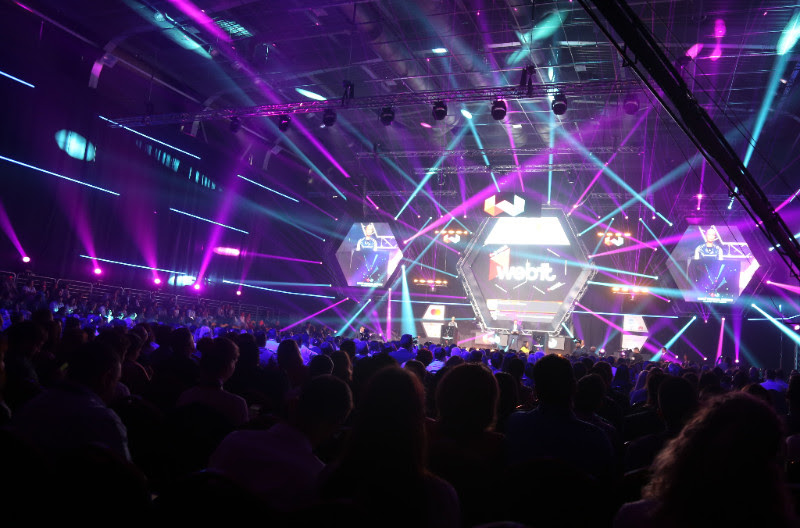 The Innovate! Summit and the Plenary Session, chaired by the European Commissioner for Digital Agenda and Society Mariya Gabriel, hosted some of the worlds digital, tech and policy leaders gathered to re:Invent Europe's Future.
The Innovate! Summit and the Plenary Session, chaired by the European Commissioner for Digital Agenda and Society Mariya Gabriel, hosted some of the worlds digital, tech and policy leaders gathered to re:Invent Europe's Future.

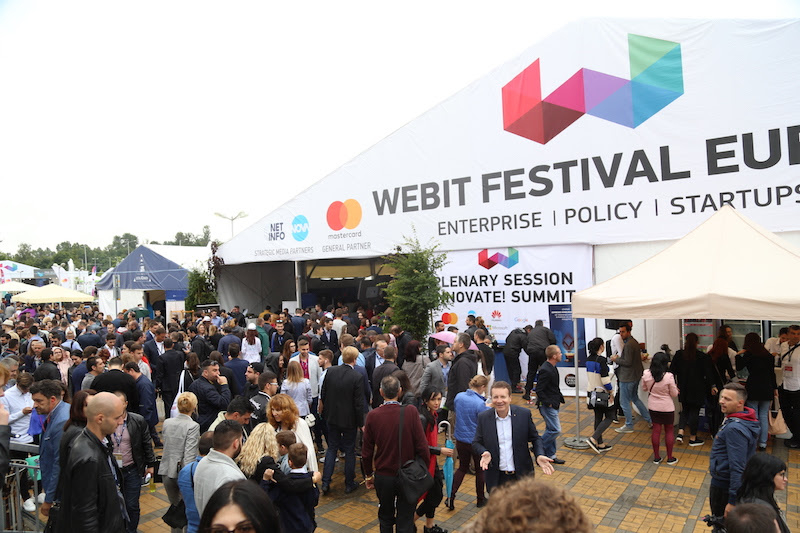
The Webit City has welcomed 10'000 global leaders and they all requested a residency :)
Here are just 5 quotes out of over 1000 interviews with the Webit City residents: "Unparalleled global business and policy networking at its highest level!" "The most amazing business event with a festival experience" "We basically do business here" "This is the only event where top EU policy makers and global business leaders exchange thoughts and share valuable discussions" “We got more investors visiting our expo booth compared to any other event we have been to”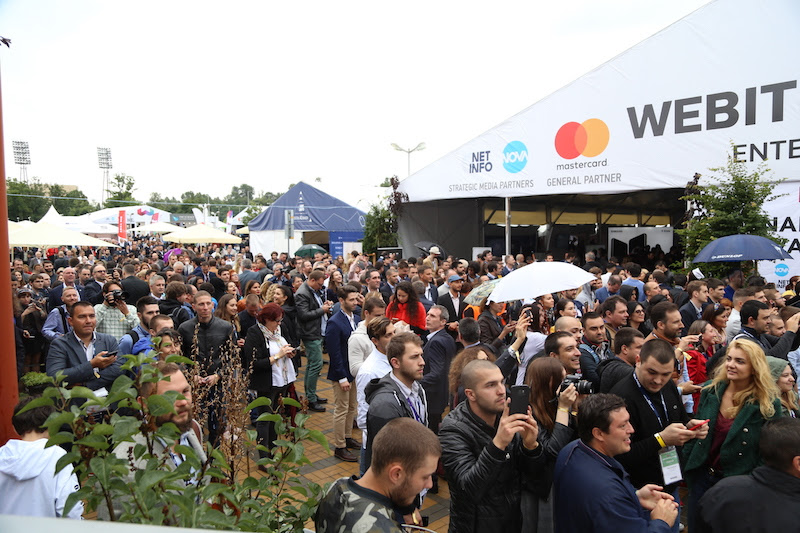

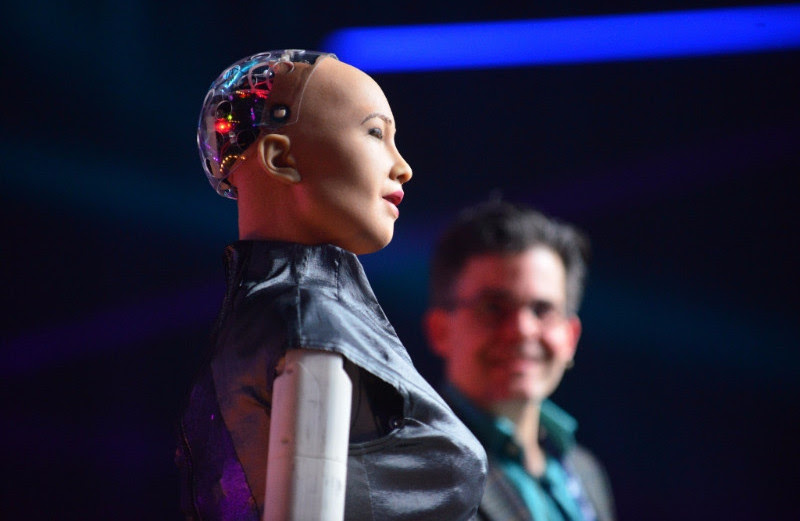
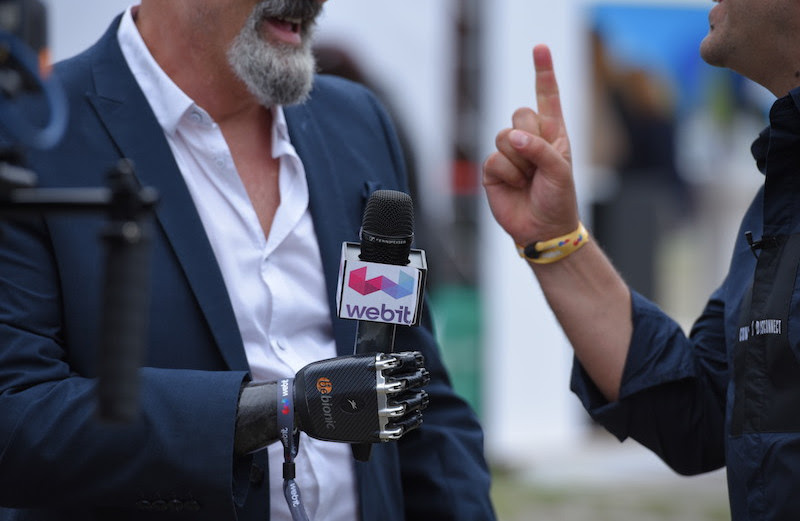
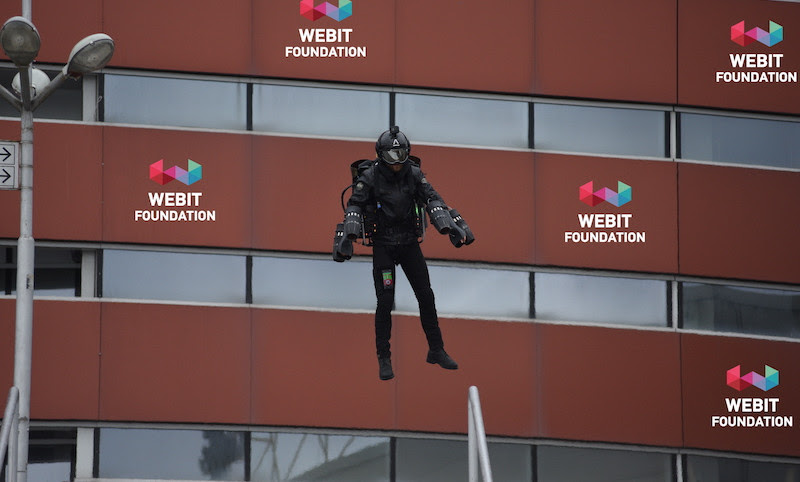
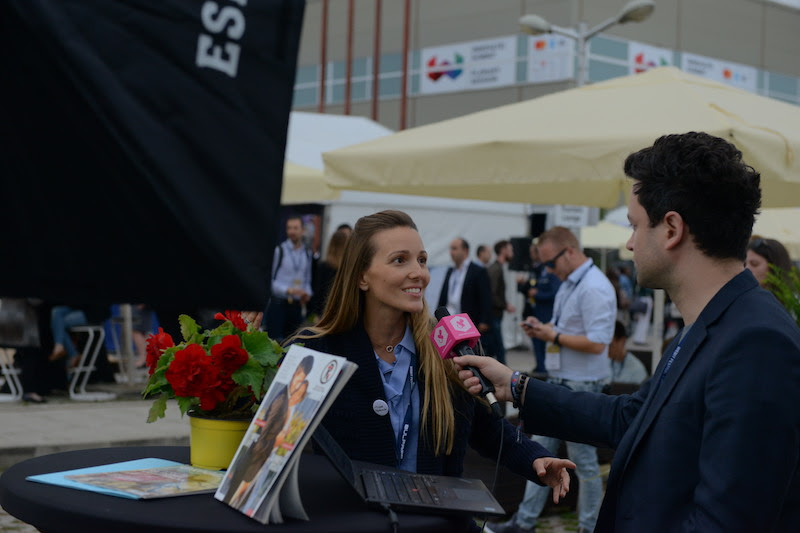
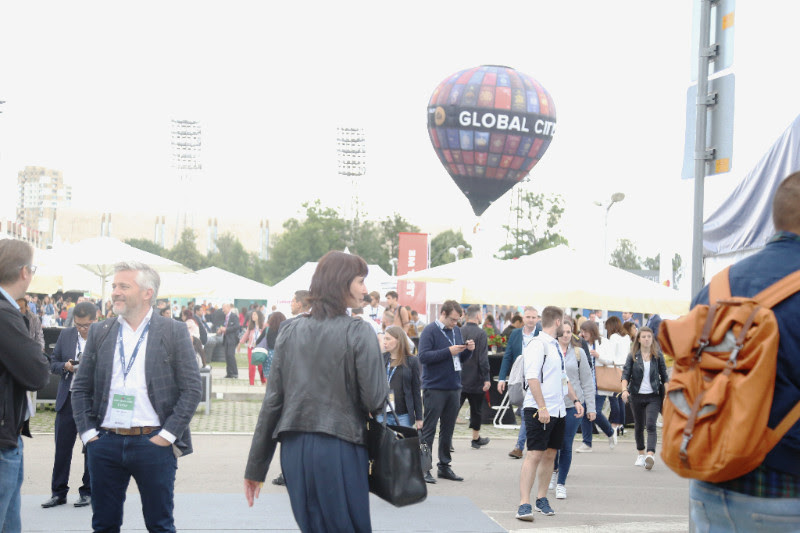
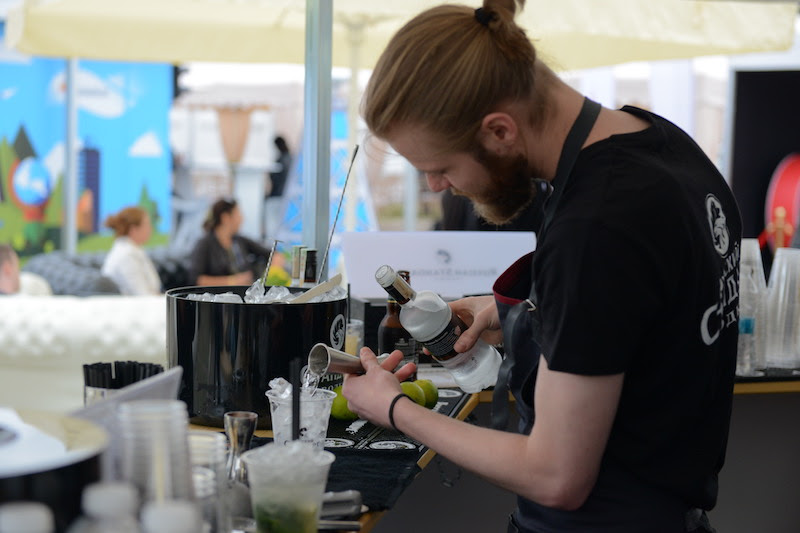
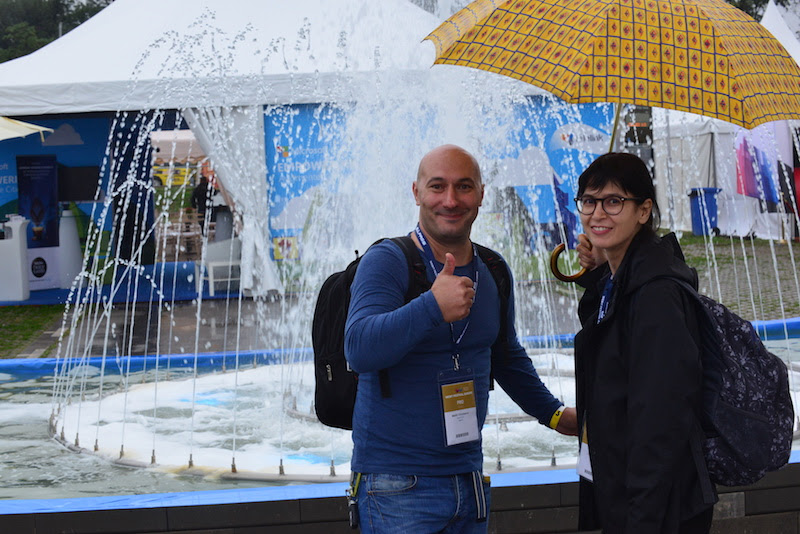
200+ exhibitors at over 20'000 sq.m Webit City expo & business networking area
From global tech, health, fintech, cybersecurity, mobility, blockchain, entertainment, AI, cloud leaders to smart jet fighters - they all were at Webit.Festival Europe 2018 represented by their global or EMEA HQs. Also hosted national pavilions.
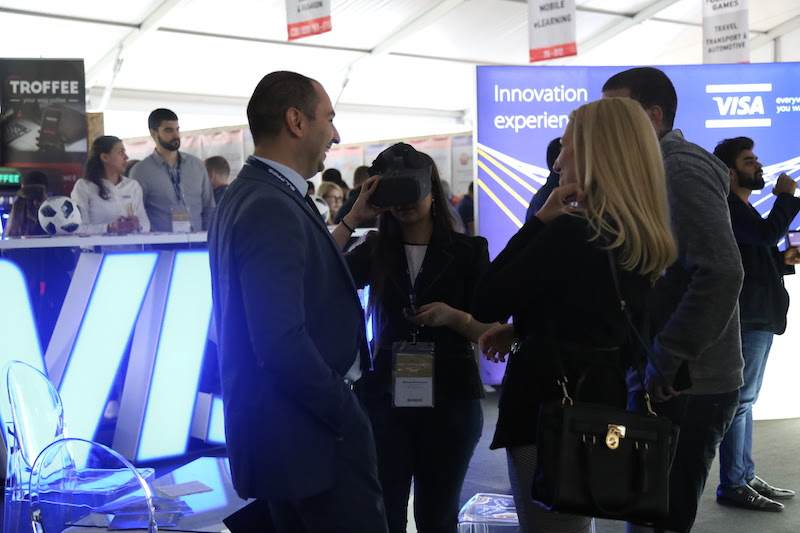
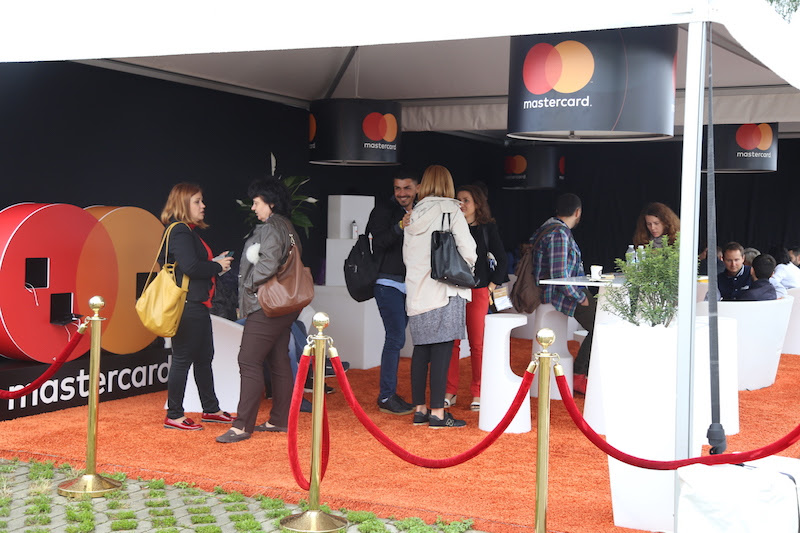
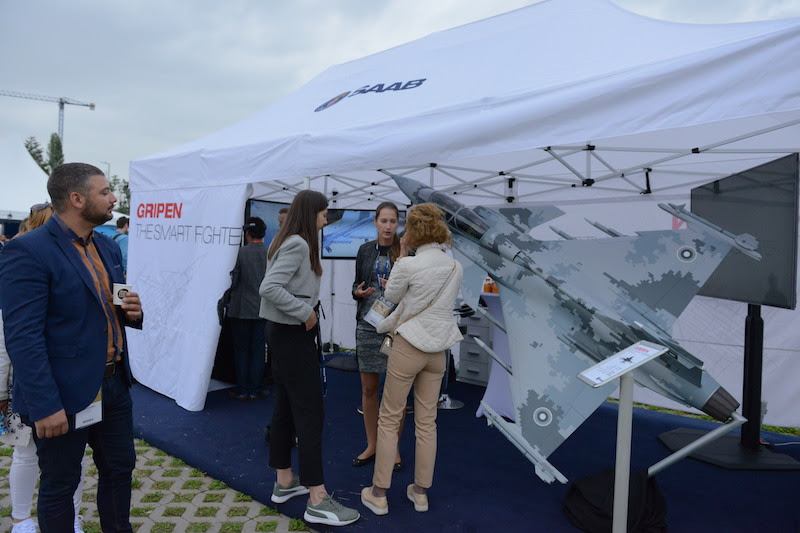
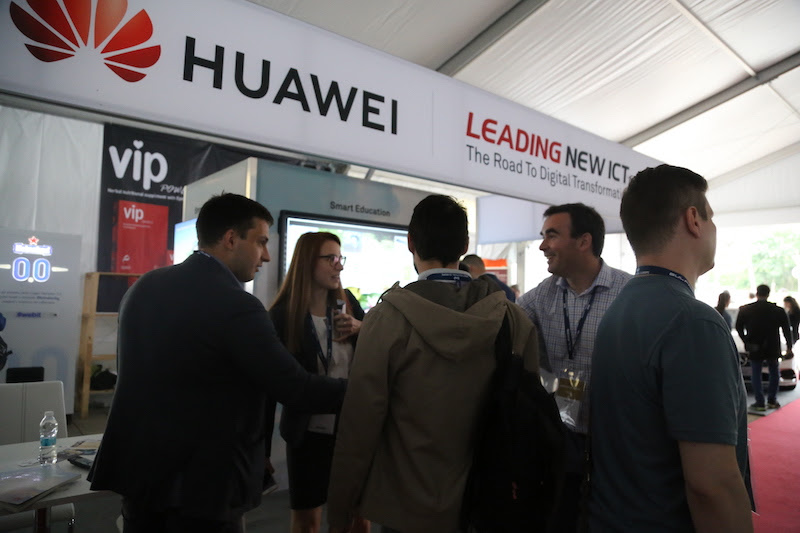
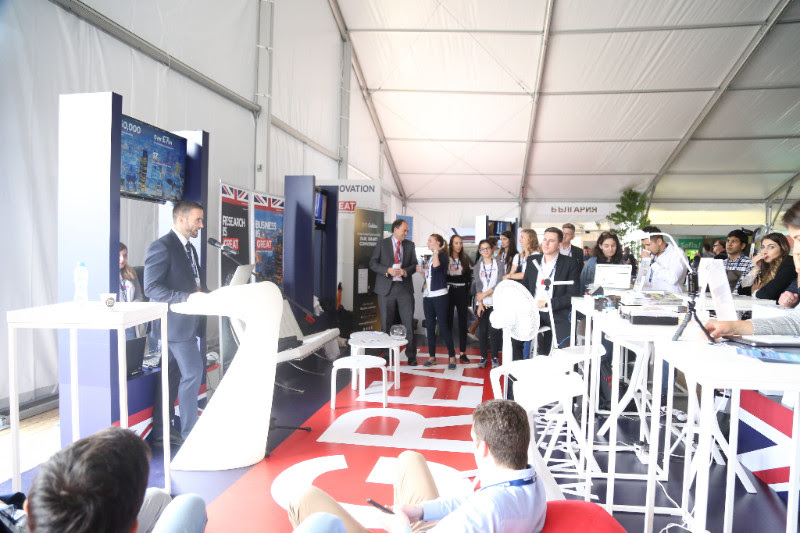
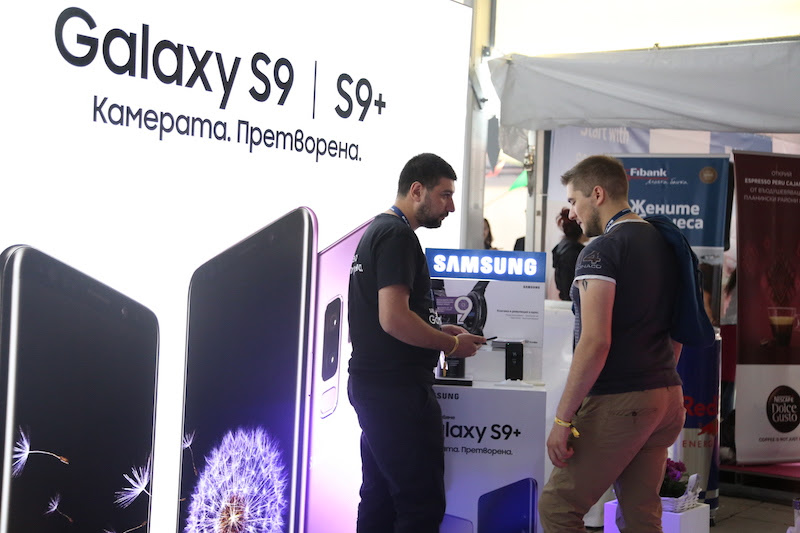

12 independent summits and over 50 meetups
421 speakers have created over 110 hours of conference agenda & amazing content within 12 independent summits.
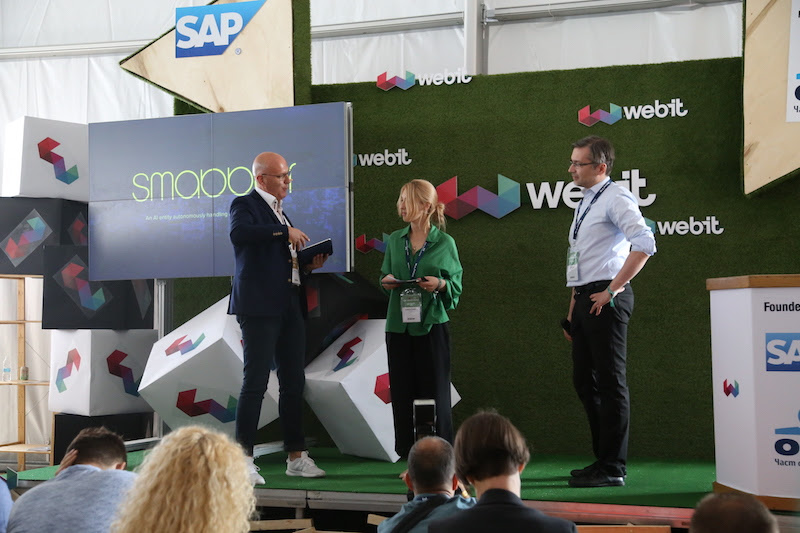
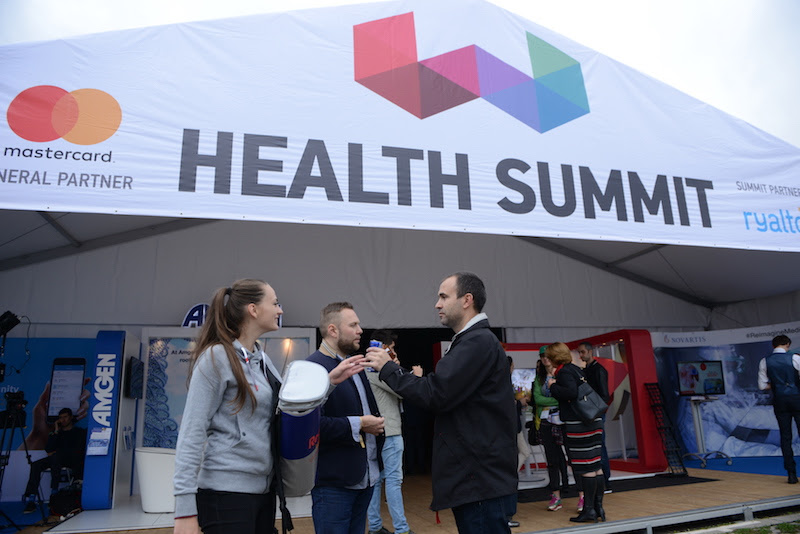

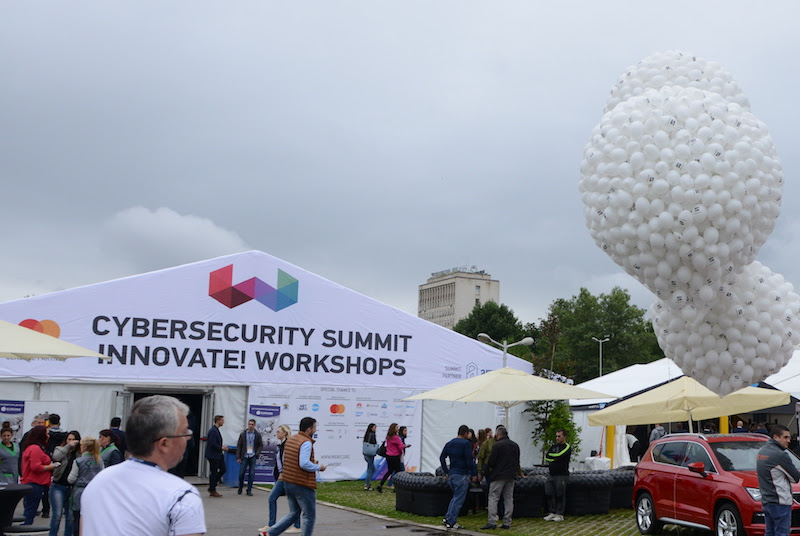
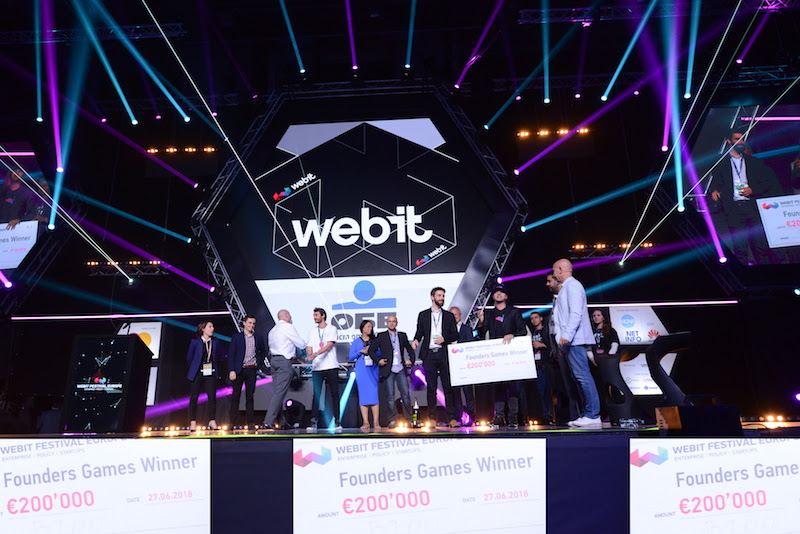 Founders Games winner of 200'000 EUR cheque is BIOO from Portugal.
Founders Games winner of 200'000 EUR cheque is BIOO from Portugal.
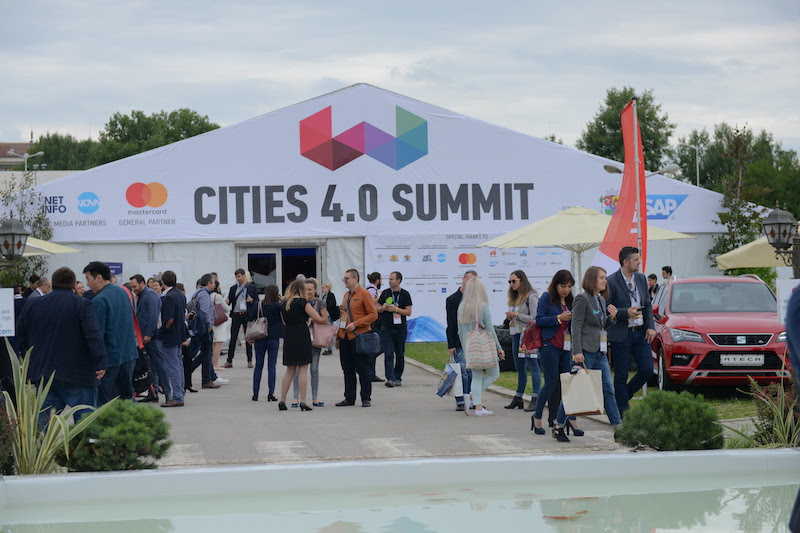
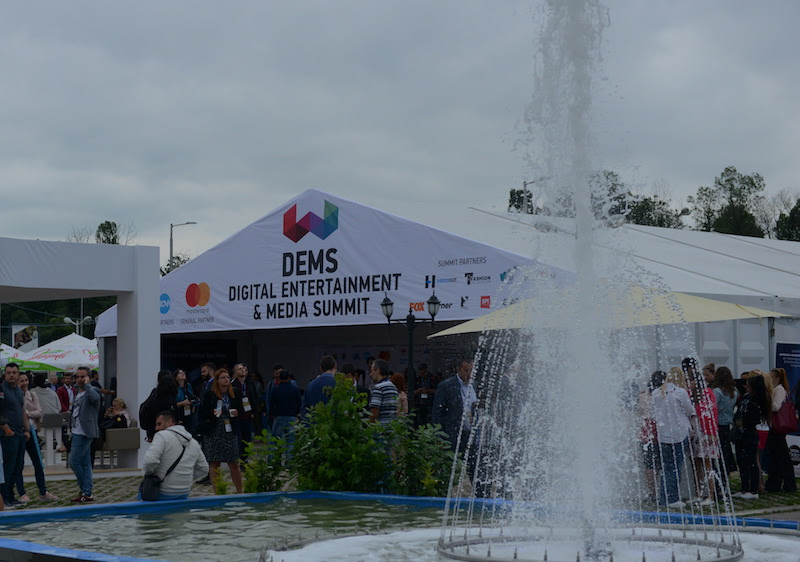
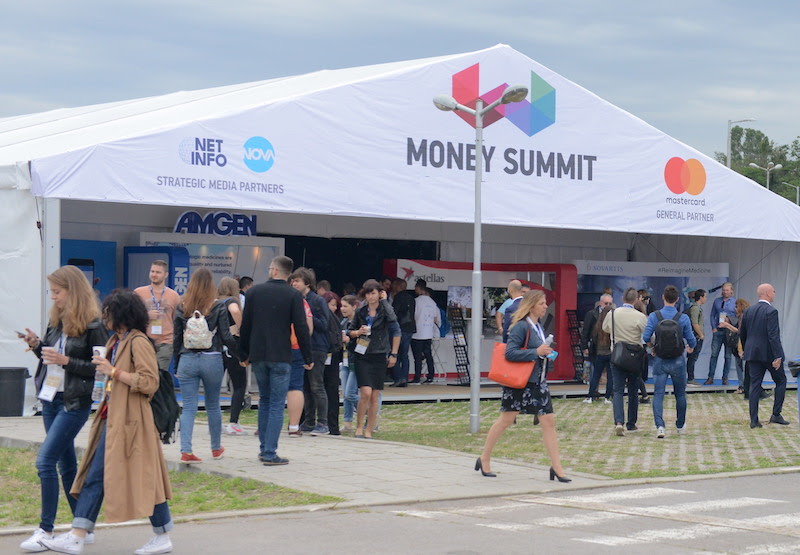
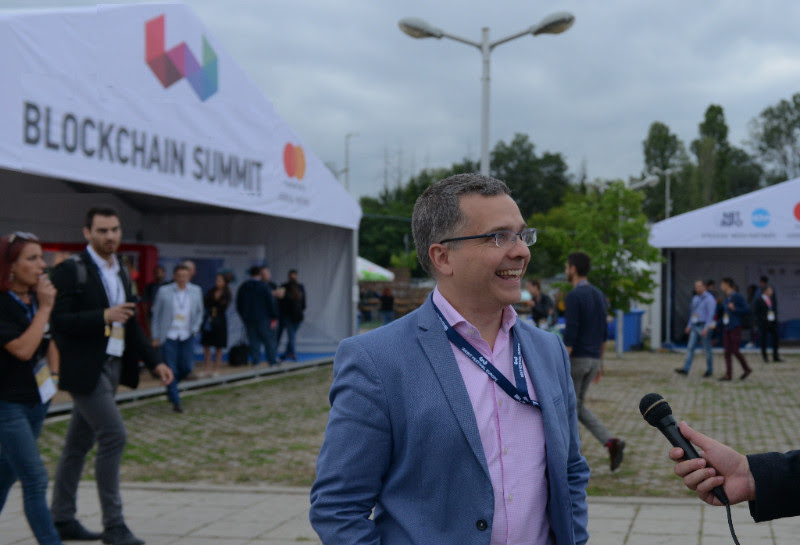 Cities 4.0 Summit, Digital Entertainment and Media Summit, Money Summit and Blockchain Summit
Cities 4.0 Summit, Digital Entertainment and Media Summit, Money Summit and Blockchain Summit
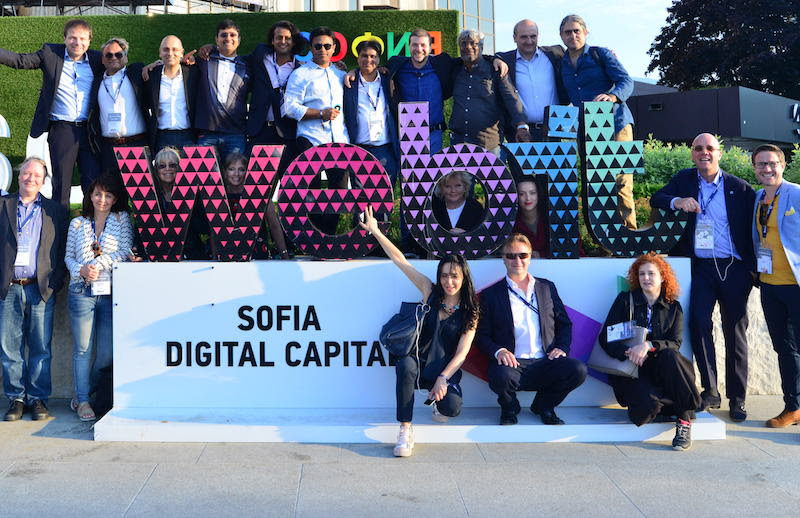
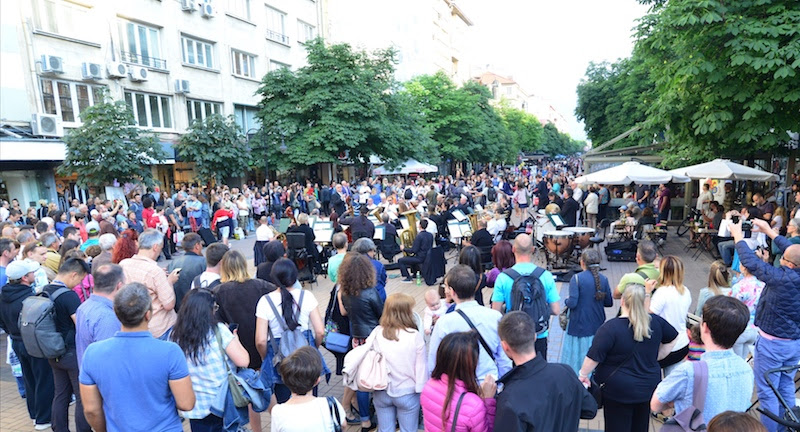
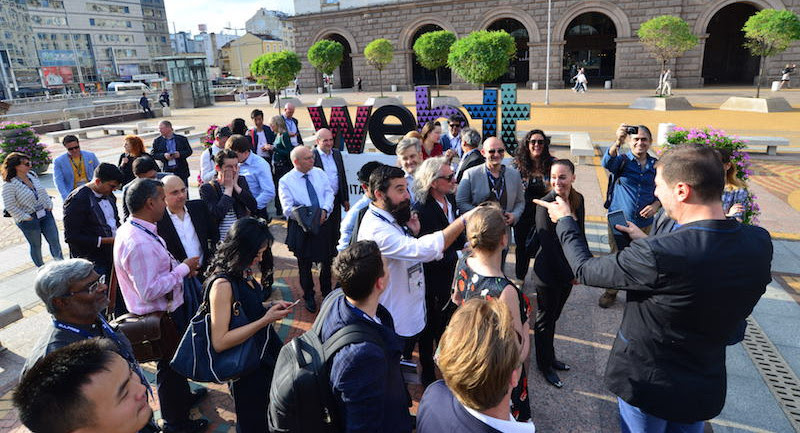
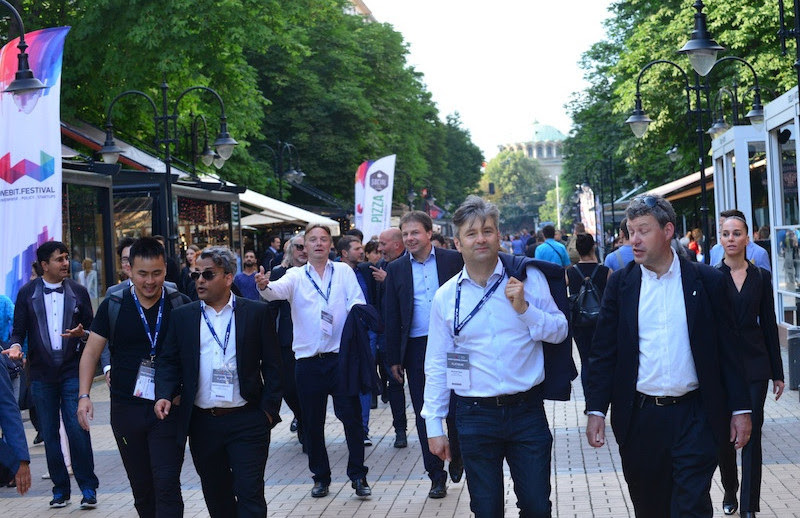
Webit Night Urban Summit

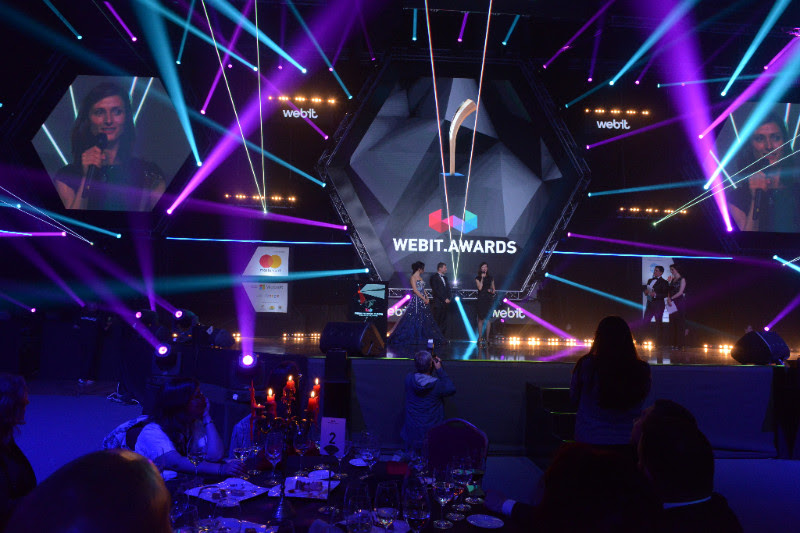
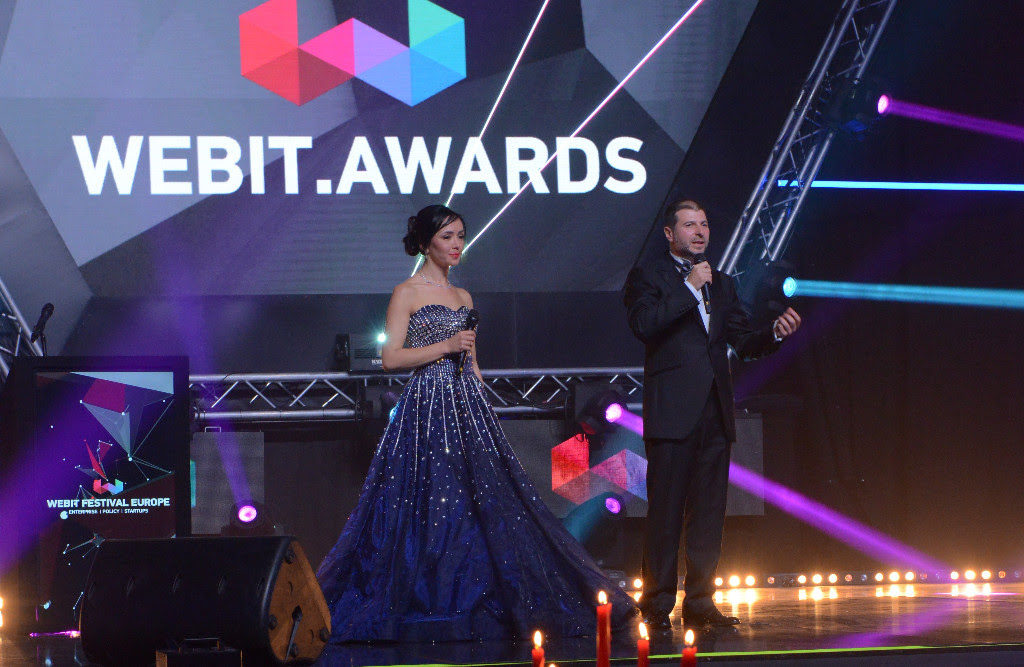
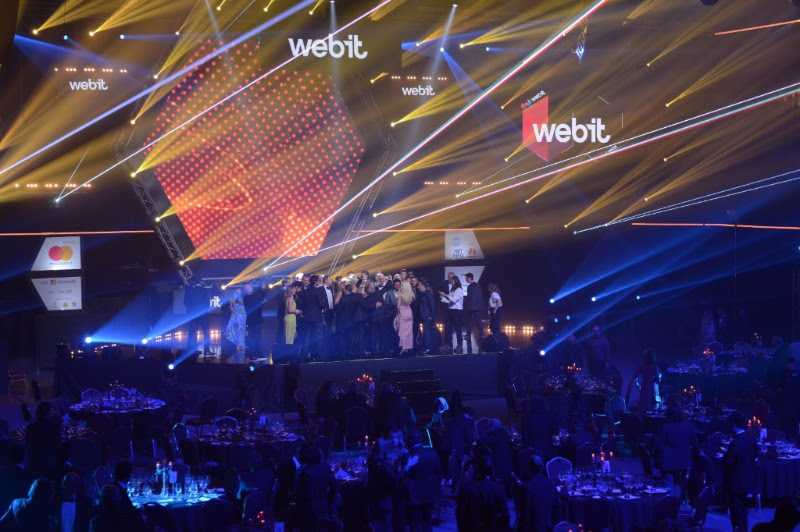 The Global Webit Awards Ceremony and The Chairman' Dinner by Dr. Russev
The Global Webit Awards Ceremony and The Chairman' Dinner by Dr. Russev
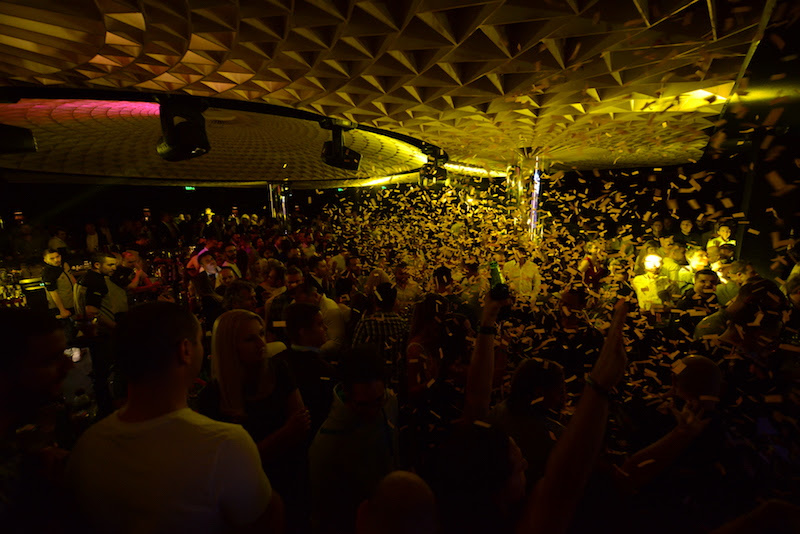

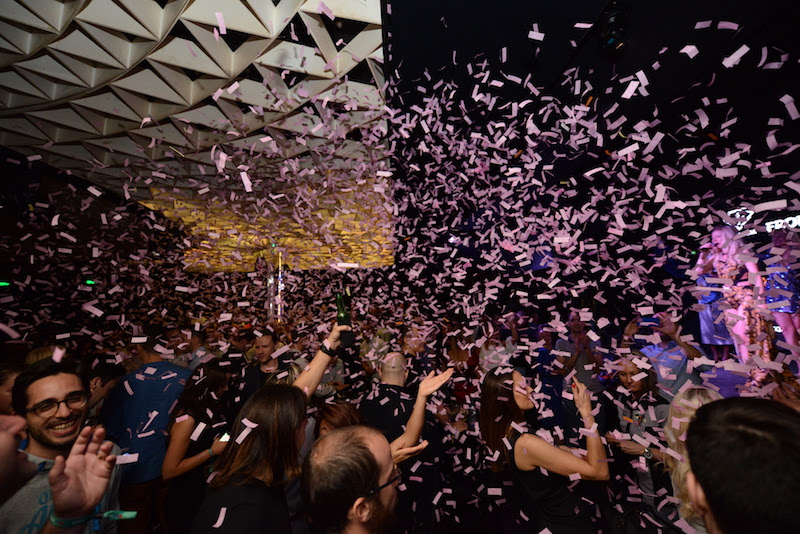
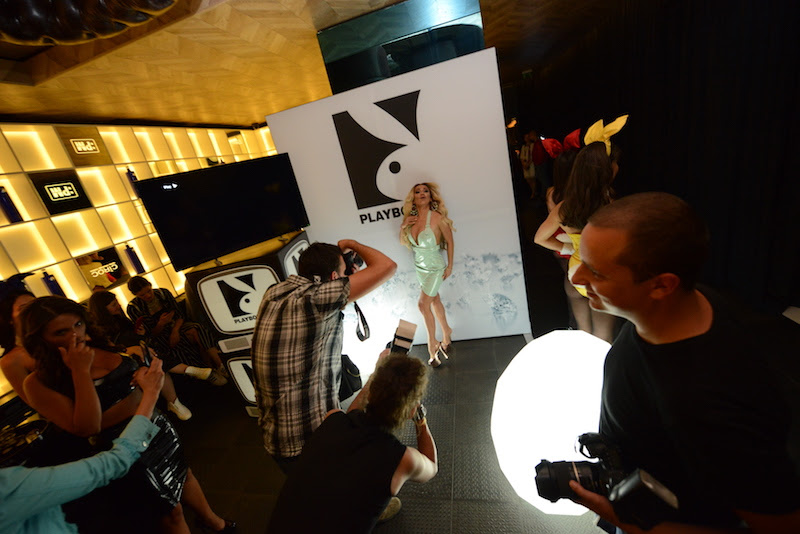 The World Famous Webit Party, powered by Playboy, Fashion TV and Dorcel
The World Famous Webit Party, powered by Playboy, Fashion TV and Dorcel
 Webit.X - gathering and inspiring 3000 young future leaders
Webit.X - gathering and inspiring 3000 young future leaders
Missed the 2018 edition? Don’t miss the 2019! Book your ticket now at super earlybird rate
Chief Security Officer of Cisco – Edna Conway joins Webit this...
Here you can see a full list of the confirmed speakers at Webit.Festival Europe 2018, while here you can get all the information you need about the tickets for the event. Managing supply chain risk requires a comprehensive approach over the complete product or process life cycle, and Cisco is looking at the potential impact of new technologies such as blockchain and the “internet of things” as part of its solution.Digitization is driving each of us across all industries to make dramatic changes to how we approach customers, products, services, and the always-on, real-time information rich marketplace. This digital economy is gender agnostic. And, it is highly dependent on a connected global ecosystem. The message is clear—no one person, enterprise, industry, government or region can stand alone any longer.
Prior to Cisco, Conway was a partner in an international private legal practice and served as Assistant Attorney General for the State of New Hampshire.“We define the value chain as the end-to-end life cycle for any solution. In order to build trust, you need to understand the risks you are taking, and those risks need to be measured in the language of business.” says Conway
She is recognized domestically (US Presidential Commissions) and globally (NATO) as the developer of architectures delivering value chain security, sustainability and resiliency. Her insight is featured in a range of publications, analyst reports, and case studies, including Forbes, Fortune, Bloomberg, CIO Magazine and the Wall Street Journal. Conway is constantly using her expertise to leverage new tools in an ever-expanding digital arsenal. She has turned her attention to the security potential in blockchain. With the ability to track data through networks, blockchain becomes a highly effective digital ledger, or “passport for the data” according to her.My path to security was built on a foundation of protecting intellectual property; enhanced by a legal background and rich engineering and operational leadership roles afforded to me by Cisco. Each of these opportunities, including leaving a successful legal practice to join Cisco, required faith. Faith in my own ability to learn an entirely new discipline and trust that my colleagues would support me in that effort.
Recognition of her industry leadership includes membership in the Fortune Most Powerful Women community, and awards including: a Fed 100 Award, Stevie “Maverick of the Year Award,” a Connected World Magazine “Machine to Machine and IOT Trailblazer” Award, an SC Media Reboot Leadership Award, a New Hampshire Tech Professional of the Year 2018 Award, and CSO of the Year Award at RSA.“A chain of custody of your data and your actions across the full spectrum of a life cycle adds a degree of integrity we’ve never had the ability to do easily before”
We’ve updated our Privacy Statement
There is so much buzz around the new EU’s General Data Protection Regulation (GDPR)
At Webit we are firmly committed to privacy and data protection and we are happy to confirm that we, too, have taken all necessary steps to ensure [full] compliance with the GDPR. All necessary controls and features are in place so you can continue to use our service with confidence.
Feel free to check out our updated Privacy Statement to understand more about the types of information we may collect, how we use it, and why we request it.
Webit is all about community and empowering your success through connecting you with potential partners, investors and clients from all around the world.
SPECIAL 50% DISCOUNT
We also want to take this opportunity to let you know that Webit is welcoming this new era of data privacy by providing all our subscribers a special "DATA present” 50% off from all tickets for Webit.Fetsival Europe 2018 starting this Friday, 25 May till 29 May.
We release a total of 250 tickets for this special "DATA Present".
Register here
and join Webit.Festival Europe with a special discount of 50% on all tickets with code: GDPR
We collect personal data when you register with us via our website or when participating in our events, exchange personal contacts, etc. We will use your personal information to provide and further improve our services, to ensure the security of our website and information systems, as well as for fraud prevention. We do not share it with other companies or organizations. We send to our customers, partners, participants in our events, subscribers and community our information bulletin about the upcoming events, promotions and free tickets, latest developments, new technologies, meetups, parties, products and services, etc.
It is all about experience and successful business networking!
With all the space we need now - we decided that it is time go wild!
All the 6000 attendees from global enterprises, through SMEs to scaleups/startups, academia leaders and policy makers come to Webit for 4 main reasons:- to see the future (check the speakers and Europe's top 200 startups) - to establish their place in the future (policy makers and business leaders discuss digital policy initiatives) - to connect with the right people (see who attends) - and to make successful business with them and expand their networks So we take business networking at Webit very seriously!Thus today we present to you the new Webit Fountain Networking Lounge!
Yesterday we have commissioned a company to build a brand new Dancing Webit Fountain and a water mirror around which you shall have one more unique lounge for your successful networking. The magic is that after Webit this fountain shall be no more! A fountain built for only 3 days and only for your eyes! >GET YOUR WEBIT TICKET TODAY (prices go up this week)< The New Fountain Lounge adds to the number of other special lounges you may join and have your 1:1 or group business meetings while at Webit, including: - the AI Lounge - the Cybertech Lounge - the Cities 4.0 Lounge - the Blockchain Lounge - Innovate! Lounge - the Ladies Lounge - the Platinum Lounge Looking forward to welcome you @ Europe's tech, innovation and digital policy event for 2018!Investments in FinTech
FinTech is data
Money is data too, they represent the value. As we’ve already entered a “data age”, there’s much more consciousness about the data. From online payments through digital wallets and asset management, this is a pretty vast area of settling a company and acquiring a market segment of. As for FinTech where the area has been controlled by the big banks and large organizations until recently, now we see more and more startups creating new products and truly having an impact. Even though it’s getting more crowded in the last few years, this market still provides probably the biggest opportunity that’s out there in terms of a market.One of the advantages of investing in FinTech is that one always knows where the money come from
By default, FinTech companies are dealing with money so that makes an investor’s job easier in order to track the flows. This area is fairly straightforward when it comes to a particular business model and the way the business works. The market for financial services is more than enough large so nobody has to ask questions about the size of the market or how companies in the sector will make money. The question is whether they can execute and succeed. The buzz in FInTech naturally raises the question of security: security solutions and their integration in FinTech products and services. Companies are putting more and more information on the cloud so security is a sensitive issue in all areas and needs to be paid proper attention to. Companies operating in this domain need to deal with regulations, licences and still find a way to keep their customers data secure.Webit.Festival Europe 2018 presents: Chris ‘Kubby’ Kubbernus
Here you can see a full list of the confirmed speakers at Webit.Festival, while here you can get all the information you need about the tickets for the event.
